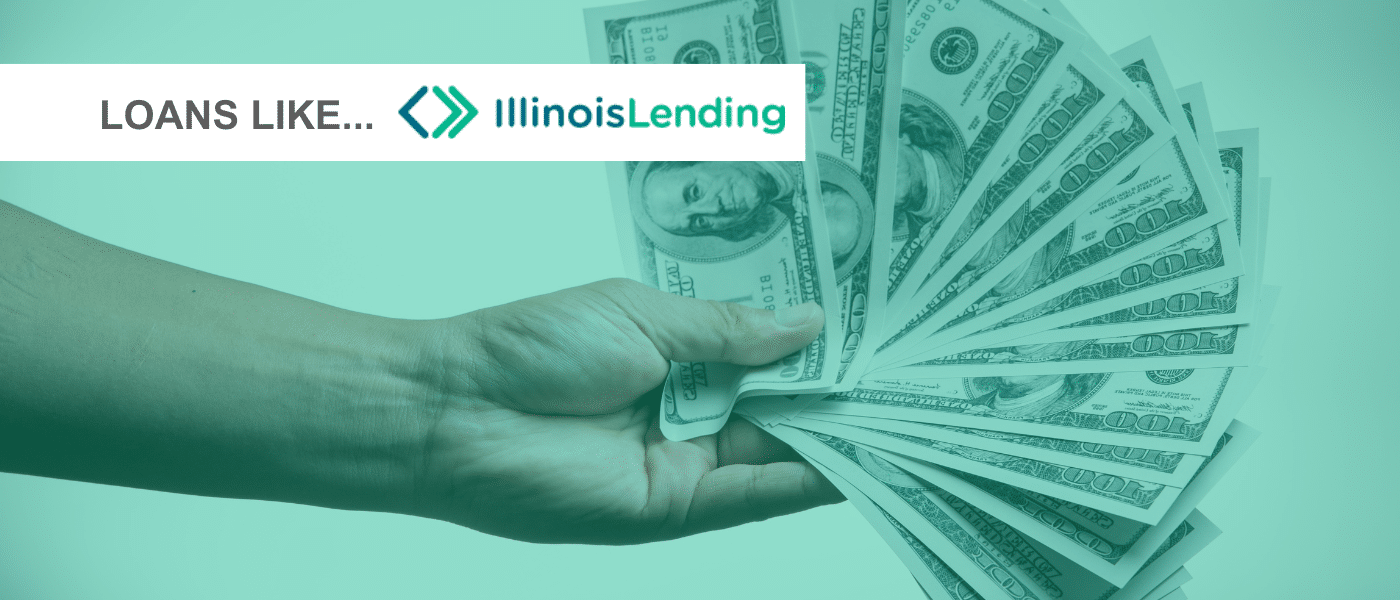A credit score simulator is a tool that can show you an estimate of the impact of your actions on your credit, actions such as paying off debt. If you are trying to pay off debt, a credit score simulator can be a great way to figure out how it will impact your credit scores.
Never used a credit score simulator, or are unsure where to start? Continue reading to learn more about where you can find one of these tools and more information on them in general.
How Does A Credit Score Simulator Work?
Credit score simulators work by having details on your existing credit accounts to help you figure out how certain actions will impact your credit scores. For example, you can see how adding or paying off an existing loan will impact your credit scores by adding that information to the simulator. Here are some of the different actions you can add to a credit score simulator:
| Credit Score Simulator Actions | Description |
| Add a new loan or multiple | Opening new credit cards or loans. |
| Payoff an existing account or multiple | Paying off existing debts. |
| Refinance or Consolidate your debt | Consolidating or refinancing existing debts. |
| Add a balance transfer card | Transferring balances to a new credit card. |
| Late payments | Making late payments on bills and debts. |
| Making on-time payments | Consistently making on-time payments. |
| Changing your credit utilization | Adjusting the ratio of credit used to total credit available. |
Different Credit Score Simulators To Try Out
Financial institutions that already have access to your credit reports will offer credit score simulators that are already personalized. While there are other simulators you can use, where you will have to add in some information related to your credit history. Here are some of the several different credit score simulators that can be used:
Credit Simulators From Banks, Credit Unions, Credit Card Companies, and Lenders
If you have a bank account or credit account with a bank, credit union, or another type of lender, you will likely be able to get a rough idea of your current credit score and may have access to their credit score simulator. Although many lenders and financial institutions have this available in their apps or online, some may not.
Credit Simulators From the Three Major Credit Bureaus
The three credit bureaus, Experian, TransUnion, and Equifax, all offer credit simulators. You can download their apps or go to their website to learn more about getting started.
Financial Resource Apps
There are a few companies out there that focus on financial literacy. You may be able to find a credit score simulator on their websites. With these, you’ll likely have to add some information about your debts and other aspects of your credit history.
Are Credit Score Simulators Accurate?
Credit simulators can definitely be helpful when trying to understand how an action like debt payment will impact your credit score! However, they are not 100% accurate, and what happens after you take a certain action can vary.
So, definitely consider these simulators as estimates; in general, if the simulator says you’ll see a certain amount of increase, don’t expect an exact match with your actual credit score to the new predicted credit score based on the simulator.
How Can Debt Payment Help Credit Scores?
In general, paying off debt will always be a positive step for your credit; however, the amount of difference it makes will depend on your current financial history and score. For example, having a bankruptcy on your credit report will make it difficult to increase your credit score with just one action; however, as a whole, debt payoff is always a good thing for your finances.
One way that debt payment helps your credit score is your credit utilization. Your credit score altogether is influenced by several factors, one being the amount of debt you have and how much open credit you have—which is what your credit utilization ratio compares. And so, when you pay off debt, that ratio will go down, and having it under 30% will be extremely beneficial for your score.
One thing to keep in mind is that when you do pay off your debts, keep the accounts open if possible, as you want to keep those credit limits to help your credit utilization ratio. This is especially important for revolving accounts like credit cards, so keep that in mind when you make your last credit card payment.
Credit card payoff can be tough to navigate because you can continue using the card as you repay it, but you aren’t tackling this type of debt alone! Most Americans have credit card debt. A recent survey by Clever Real Estate revealed that 3 out of 5 Americans are burdened with credit card debt, with the average amount owed being $5,875.1
It will also help to pay off high-interest loans like payday loans.
Not sure where to begin to tackle debt payoff? Here are some strategies that can help:
Pay More Than the Minimum Due on Your Debt
Your minimum payments on your debt will ensure that you stay in good standing with your creditors and will mean eventual loan payoff. However, if you are trying to save on interest and pay off your debt as soon as possible, then you should consider paying more than the minimum due each payment. You can do this by prioritizing one debt at a time and allocating a large amount of money towards it, or you can split up money between multiple debts and pay extra on each one.
Follow the Avalanche Method
The avalanche method involves paying the highest-interest loan first (while also still making the required monthly payments on your other debts). With this method, you’ll save a lot of money on interest, and it can be a motivating way to pay off debt.
Use the Snowball Method
The snowball method requires you to start debt payoff with your highest balance. Once you pay that off, you will then have to move in descending order. You will also need to ensure you can pay the minimum amounts on your other debts too! The snowball method can be a great way to gain momentum and see a large difference in your debt.
Consider Refinancing or Consolidating Debts
Paying off one loan with another is called refinancing while paying off multiple loans with one is called consolidation. Both of these options aim to provide lower interest rates and a more manageable repayment plan, which can help you pay off debt quickly.
What Other Actions Can I Take To Help Improve My Credit Scores
Your credit scores give a lender an idea of your financial history and will impact your ability to get financial products and services. It can also help you with things like buying a home, renting, or even finding a job. And so, it will be extremely helpful to have the best credit score you possibly can. Paying off debt isn’t the only way to help your credit; there are several other things you can do; here are some actions you can take to improve your credit scores:
Have a Positive Payment History
Your payment history is the largest factor in your credit scores, so it is extremely important to pay all your bills on time. One easy way to do this is to set up automatic payments from your bank account so you don’t have to worry about remembering multiple payments every month. Even a single missed payment can hurt your score and will remain on your credit reports for up to seven years!
Make Sure To Have a Diverse Credit Mix
Lenders/creditors will also pay attention to the types of credit you have on your credit report. Having a good mix of different types of accounts will show that your credit behavior isn’t sporadic and more of a thought-out process—a sign of financial health.
Another thing that diverse credit portfolios show is the ability to handle different kinds of credit accounts, which may help you secure a financial product or service. When looking at a FICO score, your credit mix impacts 10% of your overall score. An example of a diverse credit mix would include installment loans, mortgage loans, credit cards, and car loans. Rather than someone with something like just credit card accounts.
Try and Get a Credit Limit Increase on Your Revolving Accounts
Another thing you can do to help your credit is to try to get your credit limits increased on your revolving credit accounts. Sometimes, it may be as simple as requesting that through your lender’s app, or you may have to call in. If you have a positive payment history or a recent increase in income, it is worth a shot. Having more available credit, as mentioned above, will help your credit utilization ratio, which will help your credit score.
Get All Your Payments Reported
Think about all the different kinds of bills you pay every month: utilities, a phone bill, rent payments, many of them likely don’t get reported to the credit bureaus. The good news is that there are several options that make it possible for you to have these payments count toward your credit! One place to start is with Experian Boost, once you are signed up, you can look forward to all kinds of these alternative payments reported. As long as you pay these bills on time, it will help your credit!
Limit New Credit Inquiries
With new credit inquiries come hard credit checks, which will bring down your credit scores by a few points each time. And so, you will want to space out these credit inquiries or limit them if they aren’t necessary. If you want to compare loan or credit options before taking out a loan, applying for pre-approval will do the trick. With pre-approval, there won’t be any hard credit inquiries, but you will get a rough estimate of the loan terms and the amount you can borrow. From here, you can then compare your loan options.
FAQS
A credit score simulator provides a general estimate rather than an exact prediction. While it can give you an idea of how paying off a car loan early might affect your credit score, factors like your overall credit and other debts will also play a role in the actual impact.
Yes, most credit score simulators can simulate the impact of multiple credit inquiries, such as those from car loan applications, on your credit score. This can help you understand how shopping for a car loan might affect your credit.
It’s a good practice to check your simulated credit score periodically, especially after making significant changes like paying off debt or opening new accounts. However, remember that these simulations are estimates and may not immediately reflect all changes made to your credit report.
While a credit score simulator can show the impact of changes in credit utilization or payment history, it may not directly reflect the effects of interest rate negotiations with your credit card issuer unless those negotiations result in changes to your credit utilization or payment behaviors.
Yes, a credit score simulator can be used to estimate the impact of consolidating multiple credit card debts. It can show how this consolidation might affect your credit utilization ratio and overall credit score.
Credit score simulators generally consider the length of your credit history as one of the factors in simulating a new credit score. They use the information from your current credit report to estimate how actions like opening or closing accounts could affect the age of your credit history and subsequently your credit score.
No, a credit score simulator cannot predict the exact credit score you will have after paying off all your debts. It provides an estimated range or trend based on the information inputted, but the actual credit score can vary due to other factors not accounted for in the simulation.
Conclusion With CreditNinja
A credit score simulator can be a helpful tool if you plan on paying off debt. It can show you the impact that debt payoff may have on your credit scores and credit reports. Paying off debt is just one strategy for improving credit. To learn more, check out the CreditNinja Dojo!
References:






